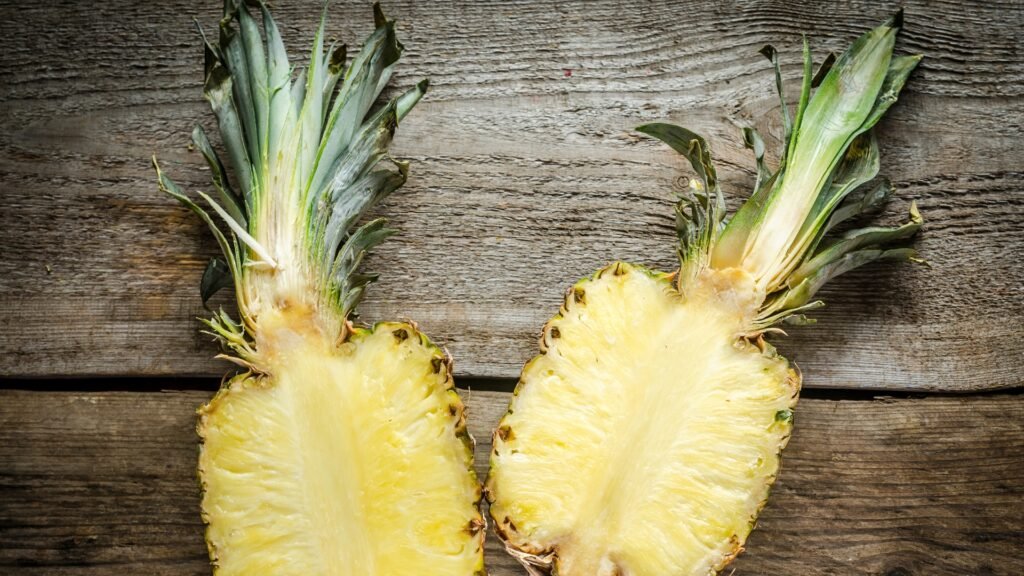Quercetin, a powerful flavonoid found in the Japanese Pagoda tree (Sophora Japonica), offers a wide range of health benefits. From its antioxidant properties to its role in promoting cardiovascular and respiratory health, quercetin has become a popular supplement for those looking to enhance their overall well-being.

Understanding Quercetin and Its Origins
Quercetin is distinguished by its presence in the plant world, where it acts as a critical pigment in a variety of fruits, vegetables, and grains, as well as in the leaves and barks of numerous trees. Among its most noted sources is the Japanese Pagoda tree, or Sophora Japonica, recognized for its high quercetin content. This flavonoid plays a pivotal role in the plant’s defense mechanism against environmental stresses, pests, and microbial attacks, showcasing its inherent antioxidant capabilities.
Historically, Sophora Japonica has been utilized in traditional Eastern medicine, leveraging the therapeutic properties of quercetin. This utilization underpins the compound’s journey from ancient remedies to modern dietary supplements. The extraction of quercetin from natural sources involves sophisticated techniques to isolate and purify the compound, ensuring its potency and effectiveness in supplement form.
Beyond its origins in traditional medicine, research into quercetin has expanded globally, with scientific studies exploring its pharmacological effects and potential health benefits. These investigations have shed light on how quercetin’s antioxidant action extends beyond plant defense, offering humans significant health-promoting properties, particularly in combating oxidative stress and inflammation.
In the contemporary health and wellness landscape, quercetin represents a bridge between ancient herbal wisdom and modern nutritional science. Its widespread presence in the plant kingdom hints at its fundamental role in human health, encouraging further exploration into its dietary sources and supplementation benefits. As we delve deeper into the origins and effects of this potent flavonoid, we uncover the rich tapestry of interactions that sustain both plant health and human well-being.
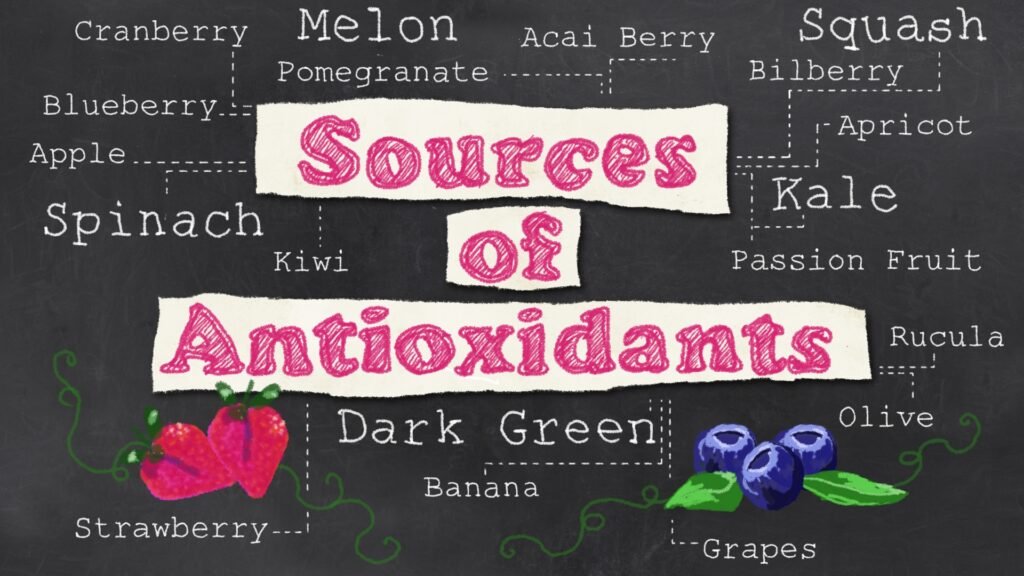
The Antioxidant Power of Quercetin
Quercetin stands out as a formidable ally in the fight against cellular deterioration, offering a shield against the relentless assault of free radicals. These unstable molecules, a byproduct of both natural metabolic processes and external environmental factors, can wreak havoc on cells, leading to oxidative stress. This stress is a known precursor to a myriad of chronic conditions, underscoring the critical role antioxidants play in health maintenance. Quercetin, with its potent antioxidant capabilities, intervenes by donating electrons to these free radicals, neutralizing them and thus preventing them from causing further damage.
The mechanism through which quercetin exerts its antioxidant effects is multifaceted. It not only scavenges free radicals directly but also boosts the body’s own antioxidant defenses. This includes the upregulation of enzymes like superoxide dismutase and glutathione peroxidase, both of which play an instrumental role in mitigating oxidative stress within the body. Additionally, quercetin’s influence extends to the modulation of signaling pathways that are pivotal in the body’s response to oxidative stress, further illustrating its comprehensive approach to antioxidant protection.
By fortifying cellular integrity and stabilizing reactive molecules, quercetin aids in preserving the delicate balance within our systems. Its contribution is vital in the context of environmental pollutants and lifestyle factors that exacerbate oxidative damage, offering a layer of defense that supports the body’s resilience against aging and disease. The significance of quercetin’s antioxidant power cannot be overstated, as it embodies a key element in the pursuit of longevity and optimal health, acting as a guardian at the cellular level.

Quercetin and Cardiovascular Health
Quercetin’s impact on the heart and blood vessels is profound and multifaceted. By promoting enhanced endothelial function, this flavonoid helps maintain blood pressure levels within a healthy range, essential for cardiovascular well-being. The endothelium, the inner lining of blood vessels, plays a critical role in regulating vascular tone and maintaining blood flow. Quercetin facilitates this by stimulating the production of nitric oxide, a molecule known for its vasodilating effects, which in turn supports healthy circulation and blood pressure.
Moreover, quercetin’s anti-inflammatory properties are beneficial in preventing the buildup of plaque in the arteries, a condition known as atherosclerosis. It does so by inhibiting the oxidation of LDL cholesterol, a key factor in the development of arterial plaque. This action helps to stave off the progression of heart disease, providing a protective shield against heart attacks and strokes.
Research also highlights quercetin’s capacity to reduce the levels of harmful cholesterol and triglycerides in the blood. By improving the lipid profile, quercetin contributes to the overall health of the cardiovascular system, reducing the risk factors associated with coronary artery disease.
In the context of heart health, the advantages of incorporating quercetin into one’s diet or supplement regimen cannot be overlooked. Its natural presence in various fruits and vegetables underscores the importance of a diet rich in these foods. However, for individuals looking to achieve targeted cardiovascular support, quercetin supplements offer a concentrated dose of this heart-healthy flavonoid, emphasizing its role as a vital component in maintaining cardiovascular health and preventing disease.

Enhancing Respiratory Health with Quercetin
Quercetin’s prowess in bolstering respiratory function emerges as a beacon of hope for those grappling with chronic respiratory issues. Its anti-inflammatory properties play a pivotal role in soothing inflamed airways, which is particularly beneficial for individuals suffering from conditions like asthma and chronic bronchitis. This natural flavonoid acts by mitigating the inflammatory responses within the respiratory system, thereby reducing symptoms such as wheezing, coughing, and difficulty breathing that often plague those with compromised lung function.
The utility of quercetin extends to its action on allergic reactions that can exacerbate respiratory conditions. By stabilizing mast cells, quercetin prevents the excessive release of histamine, a compound that contributes to allergy symptoms. This mechanism not only aids in managing seasonal allergies but also provides relief for those with allergic asthma, making breathing easier and reducing the frequency of asthma attacks.
Moreover, the antioxidant effects of quercetin come into play by protecting the lung tissue from oxidative damage caused by pollutants and allergens in the environment. This protective barrier supports lung health and enhances the body’s ability to ward off respiratory infections.
Incorporating quercetin into one’s diet through natural sources or supplementation could thus serve as a strategic move towards improving lung health and respiratory well-being. Its multifaceted approach in addressing inflammation, allergies, and oxidative stress makes quercetin a noteworthy ally in the pursuit of optimal respiratory function.
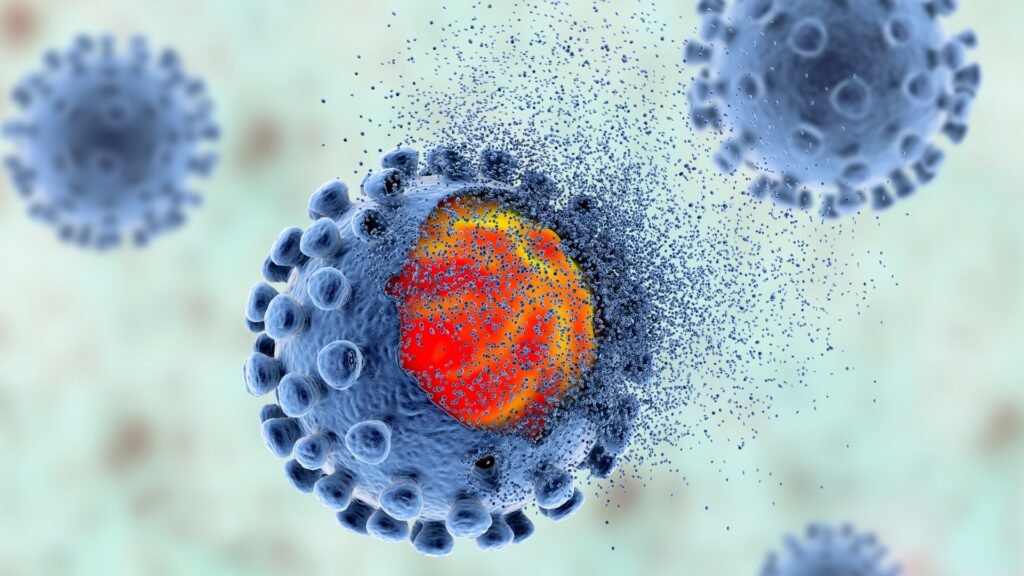
Quercetin as an Antiviral Agent
Emerging research has highlighted quercetin’s promising role in the realm of antiviral therapies. This natural compound exhibits a unique ability to bolster the body’s defenses against various viral pathogens. By interfering with the virus’s life cycle, quercetin impedes viral replication, a key step in the proliferation of viruses within the host. This mechanism is crucial for curtailing the spread of infections and mitigating their impact on the body.
Quercetin’s antiviral effects are not limited to common colds and influenza; studies suggest it may also offer protective benefits against more serious viral infections. Its potential to enhance immune response is particularly valuable, as a robust immune system is fundamental in warding off viral invaders. The flavonoid achieves this by stimulating immune cell activity and modulating the production of cytokines, which are vital for orchestrating an effective immune response to infections.
Additionally, the antiviral properties of quercetin are complemented by its anti-inflammatory and antioxidant activities. These attributes contribute to a reduced inflammatory response to viral infections, which can help alleviate symptoms and promote quicker recovery. The compound’s ability to neutralize free radicals further aids in protecting cells from damage during viral attacks, showcasing a comprehensive approach to viral defense.
Given the versatility of quercetin as an antiviral agent, ongoing research aims to unlock its full potential in the prevention and management of viral diseases. Its natural origin and multifaceted mechanism of action make quercetin a compelling component in the quest for effective antiviral strategies.

Allergy Relief and Quercetin
For many individuals grappling with allergies, finding a natural solution that effectively manages symptoms is a priority. Quercetin has emerged as a powerful aid in this realm, offering a way to temper the body’s allergic reactions. This plant-derived flavonoid has shown a unique capacity to stabilize mast cells, which are crucial in the body’s response to allergens. Mast cells, when triggered by an allergen, release histamine – the substance responsible for the telltale symptoms of allergies such as sneezing, itching, and nasal congestion.
By inhibiting the release of histamine, quercetin can mitigate these uncomfortable and often debilitating symptoms, providing much-needed relief to those affected. Its natural antihistamine effect is particularly beneficial for those who seek alternatives to conventional allergy medications, which can sometimes cause drowsiness or other side effects.
Moreover, quercetin’s broad anti-inflammatory properties further contribute to its effectiveness in managing allergic reactions. Inflammation is a key component of allergic responses, and quercetin’s ability to reduce inflammation helps soothe the body’s overactive immune response to allergens. This dual action of histamine stabilization and inflammation reduction makes quercetin an invaluable component of a natural allergy management strategy.
Engaging with quercetin through diet, by consuming foods rich in this flavonoid, or through supplementation, provides a proactive approach to controlling allergy symptoms. Its incorporation into daily wellness routines represents a step toward harnessing the therapeutic potential of natural compounds in achieving greater health and comfort.
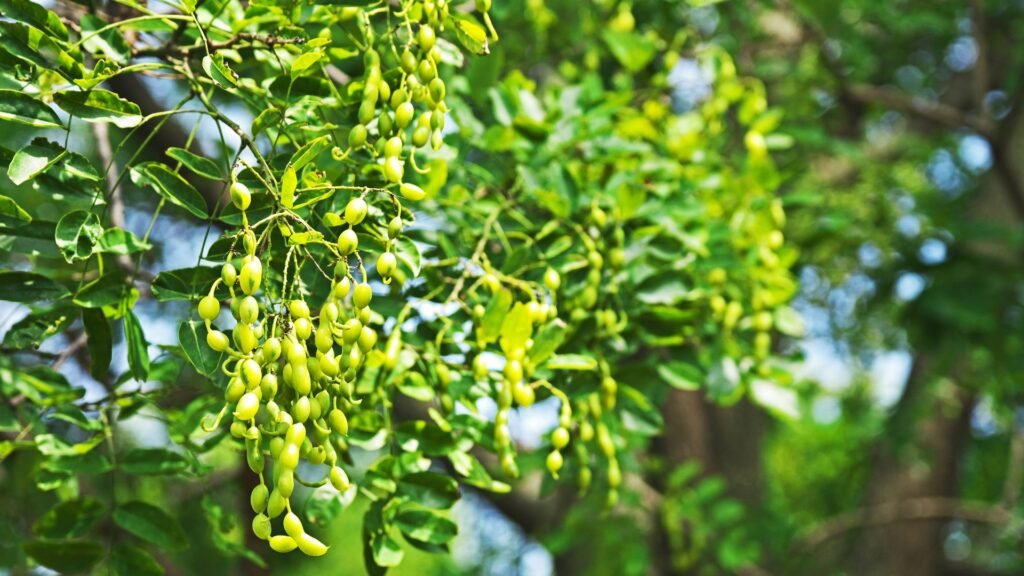
Potential Side Effects and Considerations
While the health benefits of quercetin are widely recognized, it’s essential to consider its potential side effects. Most individuals can safely incorporate quercetin into their health regimen without experiencing adverse effects, provided it is consumed within the recommended dosage guidelines. However, a minority might notice mild side effects, including digestive discomfort, nausea, or dizziness. These reactions often depend on individual sensitivity and the dosage of quercetin being taken.
Interactions with medications are another important consideration. Quercetin can interact with certain drugs, potentially altering their effectiveness. For example, it may affect how the body metabolizes certain medications, leading to higher or lower than intended drug levels in the bloodstream. Therefore, if you’re currently under medication, it’s crucial to discuss with a healthcare provider whether quercetin is a suitable supplement for you.
For individuals with specific health conditions or those who are pregnant or nursing, additional caution is advised. The safety of quercetin in these populations has not been thoroughly established, making it important to seek professional advice before beginning supplementation.
In summary, while quercetin supplements can be a valuable addition to a health-conscious lifestyle, they are not without their caveats. Being informed about the potential side effects and interactions with medications or conditions can help ensure that quercetin is used in the safest, most effective manner possible. Always consult with a healthcare professional to tailor any supplement regimen to your unique health profile and needs.
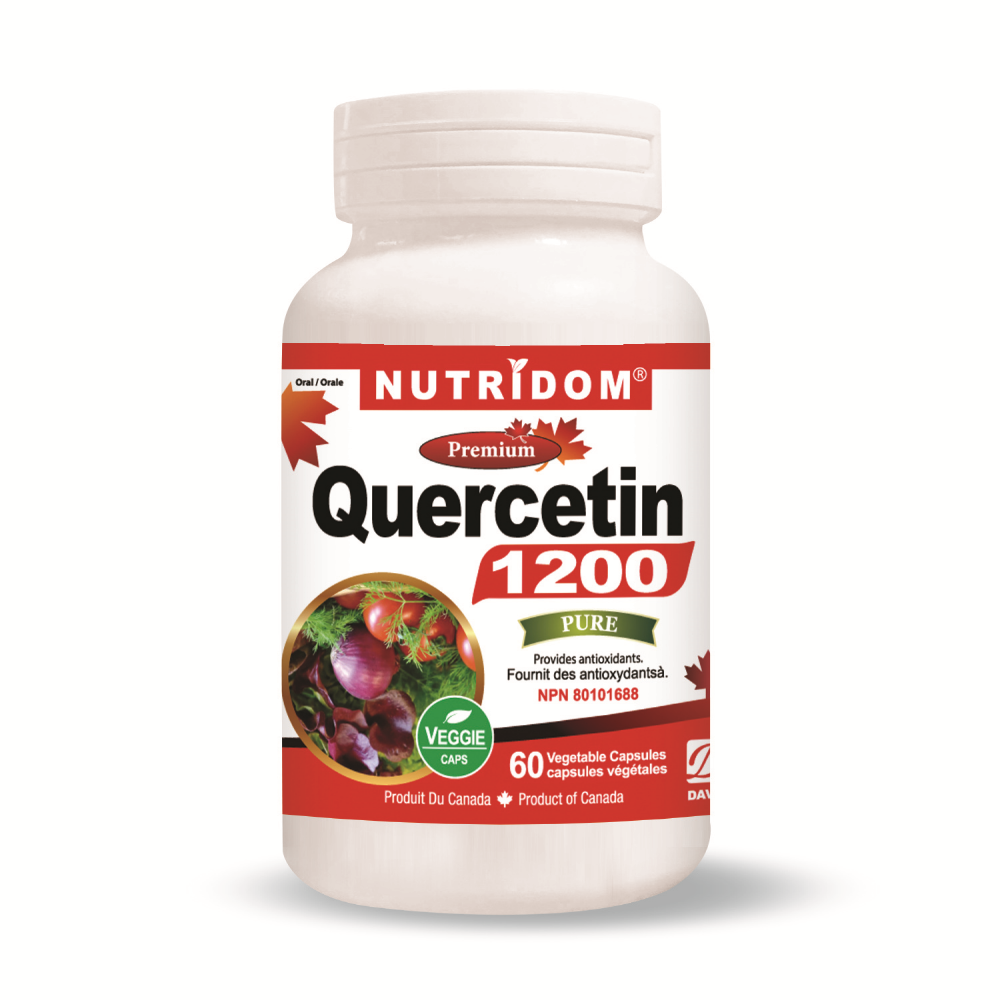
Nutridom Quercetin
Nutridom’s Quercetin utilizes the Japanese Pagoda Tree, which contains a higher concentration of quercetin compared to other plants. We use pure quercetin with a purity of over 95%. Additionally, each serving includes the maximum daily amount of 1,200 mg recommended by Health Canada, and is encapsulated in vegetarian capsules for easy and comfortable digestion.


